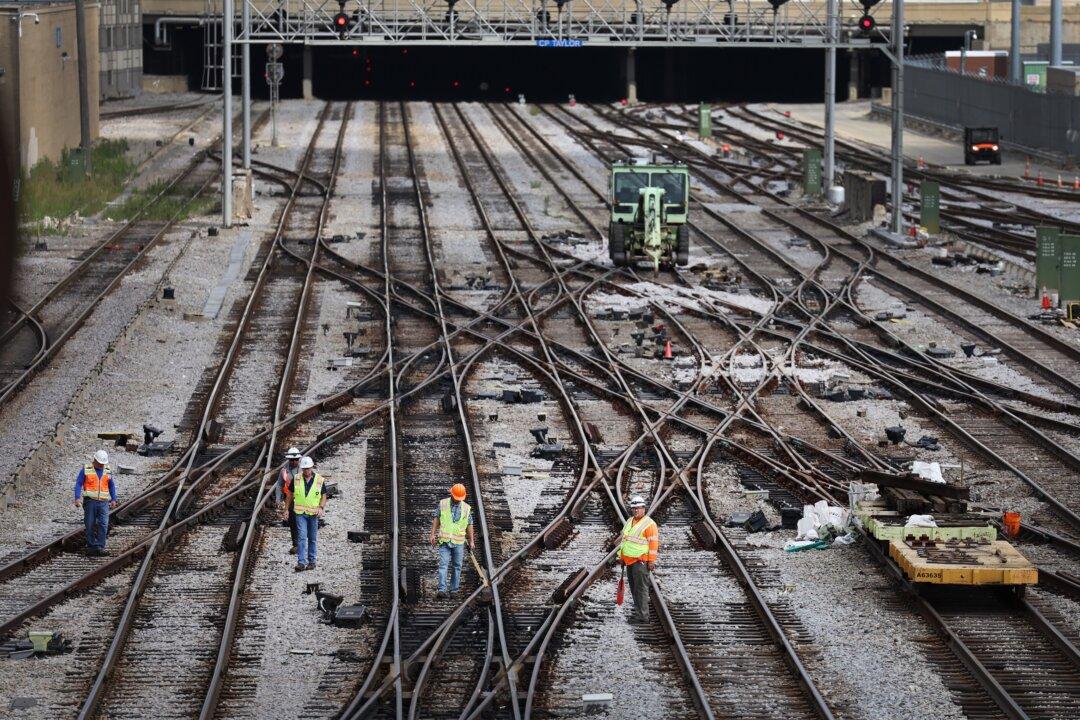An enormous supply chain jam threatens access to clean drinking water, agriculture products, and more, if rail companies and unions can’t agree on a deal by Dec. 8 to prevent a possible Dec. 9 rail strike.
As the strike deadline has moved, coalitions and individual industries have sent numerous letters to President Joe Biden’s administration, urging it to continue working to prevent a strike. These letters describe how a rail strike would affect certain vital sectors such as the supply of clean drinking water.





